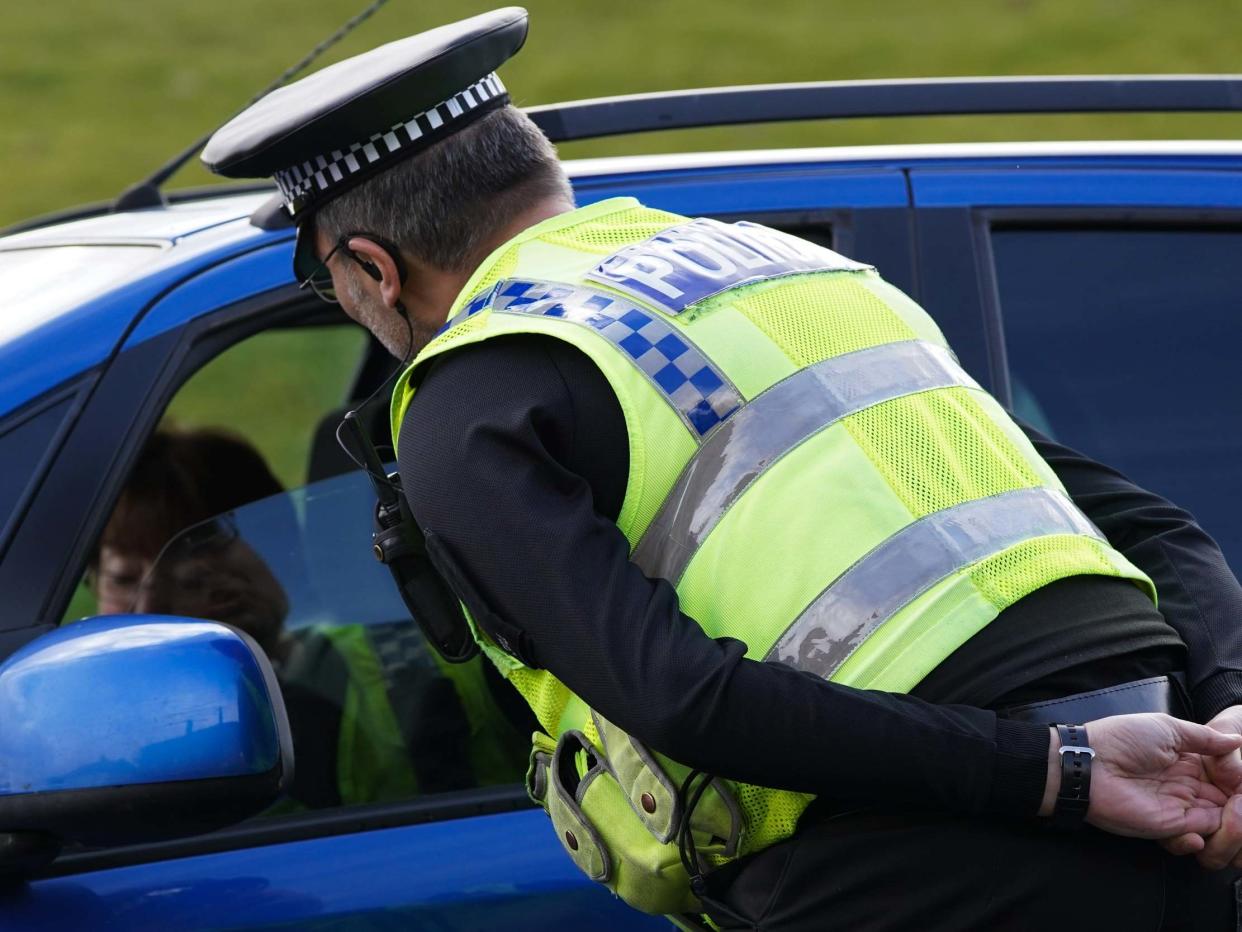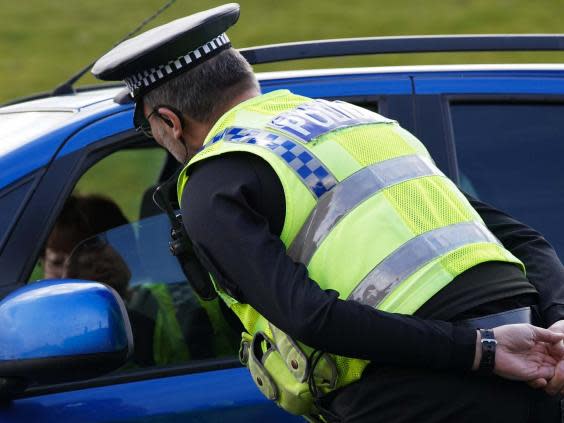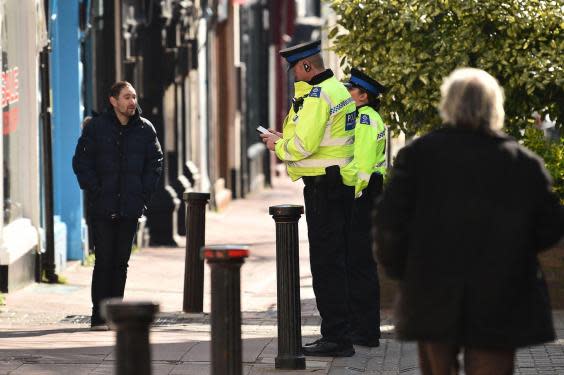Coronavirus: Police enforcement of lockdown measures over Easter could breach human rights laws, MPs warn

Police attempts to stop the public flouting coronavirus lockdown measures over the Easter bank holiday could breach human rights laws, MPs have warned.
As forces threaten to fine people for travelling to rural areas or making “non-essential” journeys, a report by the Joint Committee on Human Rights said police may be punishing members of the public “without any legal basis”.
It said “widespread confusion as to what people are and are not permitted to do” was leading to violations of fundamental freedoms, with people being questioned, fined and even arrested when they have not broken the law.
There has already been at least one miscarriage of justice, which saw a woman wrongly fined £660 under the Coronavirus Act 2020 for a crime she did not commit.
Harriet Harman, chair of the Joint Committee on Human Rights (JCHR), called the lockdown “the most significant and blanket interference with individual liberty in modern times”.
She said the “extreme measures” can only be lawful if justified by potential loss of life, and “if the measures only interfere with human rights and civil liberties to the extent necessary, are enforced in a clear, reasonable and balanced manner, and enforcement is authorised and does not go beyond what is prohibited by law.”
Ms Harman, a former lawyer and Solicitor General, added: “It remains a concern that some police forces will take a more proactive approach than is necessary and perhaps even unlawful.”
Several appear to have enforced the government guidance, rather than the new Health Protection Regulations, which are less stringent in some respects.
The regulations, which give police powers to arrest and fine people for breaking them, do not define “essential travel”, or specify what kind of groceries people can buy.

Wales is the only UK country whose law repeats the government guidance of one outdoor exercise a day, while elsewhere no limit is imposed.
A JCHR briefing paper published on Thursday listed several examples where police claimed to be enforcing a ban on “non-essential travel” even though it is not against the law and official guidance to officers reads: “We don’t want the public sanctioned for travelling a reasonable distance to exercise. Road checks on every vehicle is equally disproportionate.”
It cited Northamptonshire Police chief constable Nick Adderley’s claim that the force may impose roadblocks and check shopping trolleys to see if items are “legitimate” if people continue to flout restrictions.
Mr Adderley has since backtracked on his comments, describing his language as “clumsy”, and the home secretary said the move was “not appropriate”.
Official police guidance says there is no power to “stop and account” – where an officer stops someone and asks what they are doing – but several police forces have announced their intention to question members of the public about their reasons for being outside over the bank holiday.
Following contradictory statements on the extent of restrictions from police and government ministers, Ms Harman hit out at the “worryingly haphazard approach to communicating the content of the guidance and advice and how either of these relate to the new regulations”.
“It is crucial that government and police messaging reflects the law,” she added.
“To do otherwise risks real confusion, with members of the public being punished without any legal basis, contrary to Article 7 ECHR and the rule of law.”

Article 7 of the European Convention on Human Rights (ECHR) states that “no one shall be held guilty of any criminal offence” if they have not broken the law.
The National Police Chiefs’ Council (NPCC) and College of Policing have issued guidance to officers and stressed that arrests and fines should only be used as a last resort.
The JCHR said it “should lead to more consistent and appropriate policing”, but continued confusion was apparent on Friday morning.
A tweet was sent out from the official Twitter account for police in Cambridge reading: “Officers visited Tesco Barhill this morning as part of their patrols around supermarkets and green spaces this weekend. Good to see everyone was abiding by social distancing measures and the non-essential aisles were empty.”
Amid a deluge of criticism for suggesting that “non-essential” shopping could be policed, the tweet was deleted and Cambridgeshire Police issued a “clarification” saying it was not monitoring what people are buying from supermarkets.
A spokesperson said: “This message was sent with good intentions by an over-exuberant officer who has been spoken to since this tweet was published.”
It came after Cheshire Police said in a tweet it had issued summonses after “multiple people from the same household going to the shops for non-essential items“ but later admitted this part of the social media post was an ”error“.
Priti Patel said such approaches were “not the guidance” and that the government did not want “heavy-handed law enforcement”.
Speaking to TalkRadio, the home secretary added: “Not everybody’s going to get this right and it has taken a couple of weeks for these measures to bed in because this has been unprecedented.”
The JCHR said that even if police follow their guidance to “engage, explain and encourage” people to follow the rules voluntarily, the public may “feel intimidated into not leaving their homes” – potentially violating the right to private and family life, and freedom of association.
Ms Harman said she was concerned police were also encouraging “intrusive behaviour” by fellow citizens by introducing dedicated online tools for people to report alleged lockdown breaches.
She has written to the health secretary, Matt Hancock, asking him to ensure human rights and the rule of law are considered in the review of measures due to take place next Thursday.
Read more
What can and can’t you do under UK coronavirus lockdown laws?
Tracking the coronavirus outbreak around the world in maps and charts
When can we really expect coronavirus to end?
Everything you need to know on supermarket delivery slots
The dirty truth about washing your hands
Listen to the latest episode of The Independent Coronavirus Podcast
Police warn people will be fined for going to beauty spots at Easter
Third of British public think some police went ‘too far’ in lockdown
Police told to use ‘exceptional powers for exceptional circumstances’

 Yahoo News
Yahoo News 
